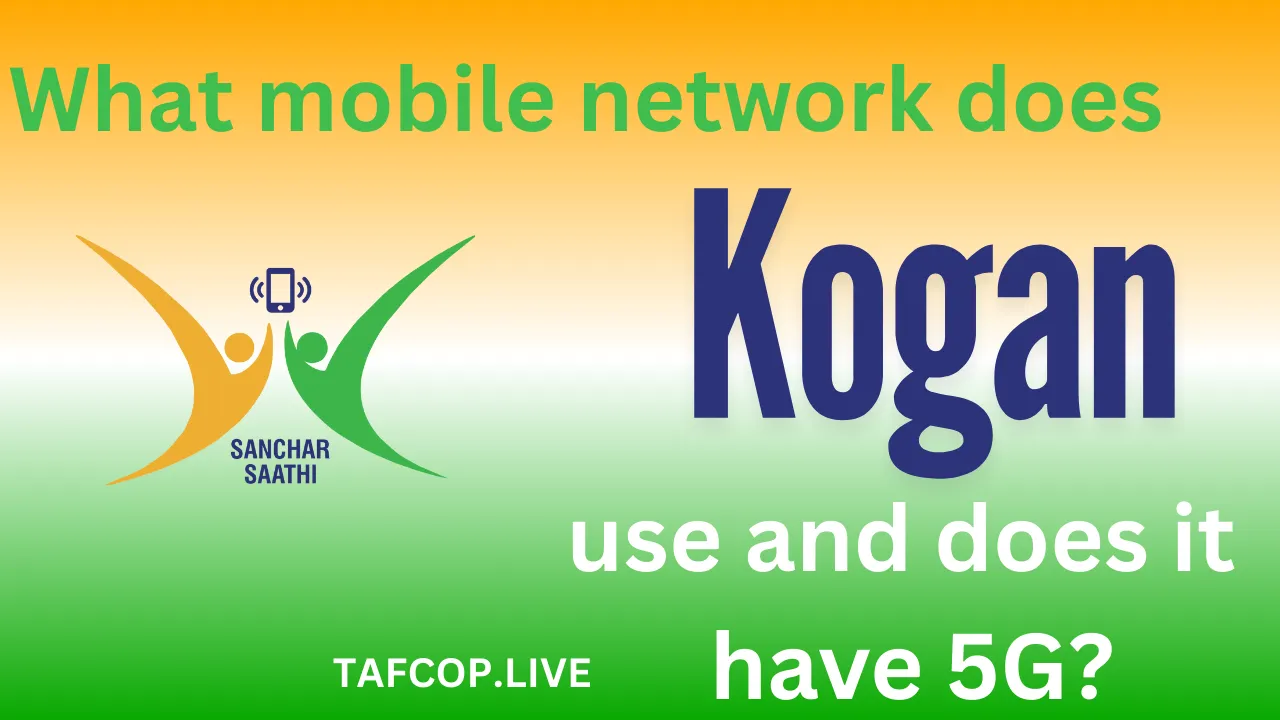You ever scroll through Kogan’s site and catch yourself muttering, “Blimey, how is it this cheap?” I know I have. It’s the kind of pricing that makes you wonder if there’s a catch. Like—how can a brand flog a 55-inch TV for less than the price of a night out in Sydney? It feels like finding a fiver in the couch cushions… except it’s a washing machine. That’s what we’re unpacking today—what’s Kogan’s secret sauce? Let’s strip back the glossy banners and “limited-time offer” screams and figure out why Kogan seems to always come in cheaper than the big guns like JB Hi-Fi, Harvey Norman, or even Amazon.
Why Is Kogan So Cheap Compared to Other Retailers?
Kogan keeps prices low by skipping middlemen, buying in bulk, using private-label products, and operating online-only to slash retail overheads. This lean business model allows them to undercut traditional retailers significantly—sometimes by hundreds of dollars.
How Does Kogan Keep Its Prices So Low?
Kogan isn’t playing the same retail game most others are. While traditional brick-and-mortar stores sink money into storefronts, flashy signage, and in-store staff, Kogan’s kicking it from a warehouse. No rent in fancy shopping centres. No floor staff waiting for commissions. Just a lean team, digital smarts, and bulk buying power.
The exact answer is: Kogan reduces costs by eliminating physical stores, purchasing directly from manufacturers, and selling under its own brands. That slashes costs across the board—from shipping to storage to marketing.
For example, say you buy a Kogan-branded smart TV. It wasn’t made by Sony or LG. It’s often manufactured in the same factory as the big brands, just minus the flashy logos and premium markups. That’s white-labelling, and Kogan’s mastered it.
What’s the Catch With Kogan’s Cheap Prices?
Alright, let’s be honest—cheap prices can raise red flags. Is it dodgy? Is the quality rubbish? Not always, but there are trade-offs.
The truth is: Kogan’s affordability sometimes comes at the cost of customer service, delivery times, or warranty terms. You may not get the luxury of walking into a store and talking to a person if something goes wrong.
For example, if you grab a budget laptop off Kogan, and it plays up in two weeks, you’ll probably go through an email-based return system—not an easy swap at your local store. Still, many Aussies are happy to trade that for a couple hundred bucks in savings.
Are Kogan Products Genuine?
This one gets thrown around a lot—“Is this legit?” And that’s fair, especially with tech.
Yes, Kogan sells genuine products, but some are ‘grey imports’—meaning they’re sourced from overseas, not local distributors. They’re not fake, just not the version meant for the Australian market.
For example, a Samsung Galaxy phone on Kogan might be a Korean or Hong Kong version. That doesn’t mean it’s fake—but you might find that the charger plug is different, or the warranty is only valid overseas.
Kogan typically discloses this in the product listing, so it’s not hidden—but you’ve got to read the fine print.
What Are Kogan’s Private Label Products?
Ever seen something like “Kogan Smart Blender Pro 9000”? That’s not some new designer brand. That’s Kogan’s own.
Private label means Kogan sells its own branded products made by third-party manufacturers. Think of it like Coles-brand chips vs. Smith’s—they might be made in the same place, but you’re not paying for the brand name.
This is where they really undercut competitors. For example, a Kogan-branded stick vacuum might cost $129, while a Dyson alternative runs $699. They both suck up dust—just one does it with more bells and whistles.
Why Doesn’t Kogan Have Physical Stores?
Walking into a shop is old school, and Kogan’s banking on that being true for good.
Kogan saves big money by not operating retail stores and running entirely online. That means no rents, no utility bills, no staff pacing around in polo shirts.
Every cent saved on overheads is funnelled into lower prices—or at least better margins for them. And in this age of online-first shopping, most of us don’t mind waiting a few days for delivery if it saves us a fortune.
Does Kogan Sell Refurbished or Clearance Items?
Yep, and that’s where the real bargains are.
Kogan sells refurbished, open-box, and clearance items at steep discounts, often through its ‘Kogan Outlet’ section. These are usually returns or demo models that have been tested, cleaned, and certified for resale.
Let’s say someone buys a monitor, unboxes it, then changes their mind. It comes back to Kogan, gets a quick test, and is sold again for less. You score a near-new product for a song.
Here’s a little cheat sheet on the kinds of items they offload:
| Type of Product | Description | Price Difference |
|---|---|---|
| Refurbished Tech | Repaired, tested, and cleaned | 20–50% off |
| Clearance Appliances | Overstock or end-of-line models | Up to 60% off |
| Open-Box Electronics | Returned but unused | Around 10–30% off |
Do Kogan’s Cheap Prices Affect Quality?
This one’s tricky. There’s no one-size-fits-all answer.
In general, Kogan products offer decent quality for the price, but they may lack the durability or premium features of pricier brands. You’re getting a good deal—but don’t expect luxury finishes or high-end specs.
I once bought a Kogan toaster. Toasted like a champ… until it didn’t. Lasted a solid year before the lever gave up. But for twenty bucks? No complaints. It’s all about expectation management, right?
Why Do Some People Complain About Kogan?
Oh, they do. Google ‘Kogan reviews’ and grab some popcorn.
Common complaints relate to slow shipping, tricky returns, and hit-or-miss customer support. People sometimes expect luxury service at budget prices—and when things go sideways, frustration follows.
But to be fair, most big online retailers cop similar feedback. The key with Kogan is to know what you’re getting into: great prices, but you’re on your own a bit more if things go pear-shaped.
“It’s like buying from a savvy market stall instead of a fancy department store. Cheap? Yep. Hand-holding? Not so much.”
What’s the Difference Between Kogan and Other Aussie Retailers?
It’s not just price—it’s approach.
Kogan focuses on volume, direct sourcing, online-only operations, and private-label products, while others like JB Hi-Fi or The Good Guys rely on brand partnerships and in-store experiences.
Let’s break it down:
- Kogan: Online only, private labels, grey imports, bulk buying
- JB Hi-Fi: In-store + online, brand names, higher margins
- Amazon AU: Marketplace model, mix of sellers, sometimes pricier
- Harvey Norman: Traditional retail, local stock, premium service
In short: Kogan plays a different game. They’re not trying to match JB Hi-Fi on experience—they’re trying to beat them on price. And for many Aussies, that’s enough.
Is It Safe to Shop from Kogan?
Mostly, yeah. But like with any online marketplace, there’s a bit of buyer savvy required.
Kogan is a legitimate business and safe to buy from, but shoppers should read item details and return policies carefully. That’s especially true for international items or grey imports.
Tip: If you’re buying something big—like a washing machine or mobile phone—check for warranty info before you check out. It’s not always straightforward.
FAQs
Does Kogan have a warehouse in Australia?
Yes, Kogan ships from Australian warehouses for most products, though some items may come from overseas depending on stock.
Can I return products easily?
You can return most items, but Kogan’s return process is online-only and can take time. Make sure you read the policy before buying.
Are Kogan TVs any good?
They’re decent for the price. They might not match the build or display quality of top-tier brands, but they work well for everyday use.
Is Kogan legit or a scam?
Kogan is a legitimate Australian company founded in 2006. It’s publicly listed and has millions of customers.
Why is delivery sometimes slow?
Some items are shipped from overseas or through third-party suppliers, which can delay dispatch times.
Conclusion
So, why is Kogan so cheap compared to other retailers? It’s not black magic—it’s just smart, scrappy business. Kogan’s cutting corners in places most of us don’t mind: no showrooms, no middlemen, and no brand-name fuss. They’re gambling that Aussies care more about price tags than packaging—and for a lot of us, they’re right.
That said, it’s not all sunshine and bargain bins. If you value premium service, same-day returns, or want the comfort of walking into a store, Kogan might not be your cup of tea. But if you’re hunting for a good deal and don’t mind rolling up your sleeves a bit?
You’ll find gold in them there discounts.

